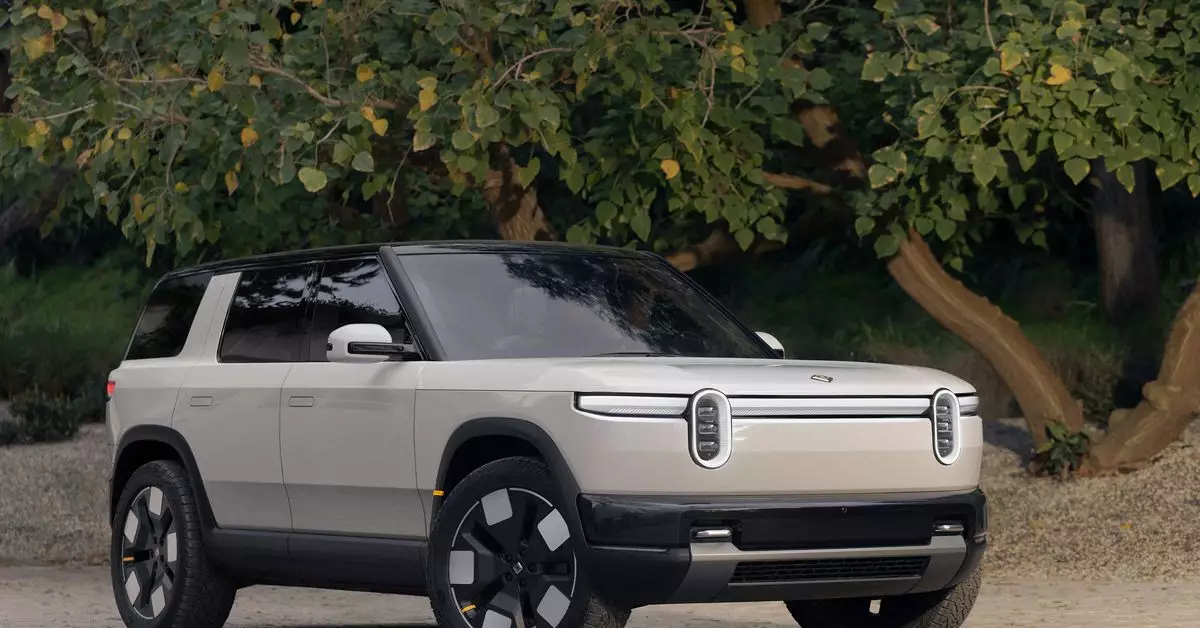Rivian, a notable name in electric vehicle (EV) manufacturing, is strategically pivoting towards domestic battery production to align itself with evolving market dynamics. Highlighted in its recent quarterly earnings report, the company has formed a partnership with South Korea’s LG Energy Solution to produce batteries for its forthcoming R2 vehicles in the United States. This crucial decision not only signifies a shift towards local manufacturing but also addresses the implications of the Inflation Reduction Act (IRA), which imposes strict requirements on the sourcing of EV components to qualify for government subsidies. By embracing local production, Rivian is positioning itself to navigate these regulatory landscapes more effectively.
The R2 is Rivian’s latest endeavor, aimed at providing a more economically accessible electric SUV with a starting price around $45,000. This initiative is a pivotal step for the company, as it broadens its offerings beyond the premium segments defined by the R1T and R1S models. The newly announced 4695 battery cells, with specifications that outsize the Tesla 4680 cells, are engineered to deliver enhanced performance. Rivian asserts these next-generation battery packs will not only be lighter and less complex but will also reduce costs in production significantly. This reduction could yield a meaningful decrease in the cost per kilowatt hour (kWh), allowing Rivian to remain competitive in a rapidly evolving market.
Rivian anticipates a remarkably efficient manufacturing process, predicting a 45% improvement in assembly effectiveness with the new battery design. By utilizing larger cells, Rivian will require fewer individual cells to create a complete battery pack, streamlining production and potentially lowering manufacturing costs. This efficiency is not just a boost for Rivian’s bottom line; it also comes amid an industry-wide effort to enhance production capabilities in light of increased demand for EVs and the necessity to comply with emerging regulatory frameworks.
However, the political landscape adds layers of complexity to Rivian’s operational outlook. With the prospect of Donald Trump returning to the presidency, there are concerns regarding the future of EV subsidies instituted during Joe Biden’s administration. Rivian and other EV manufacturers will need to adapt swiftly to any regulatory shifts that could impact their financial viability, especially companies like Rivian, which operate within a challenging market environment.
In the broader context, Rivian’s decision mirrors a growing trend among automakers to relocate battery manufacturing to the U.S. Major players in the industry are scrambling to secure domestic battery supply chains, particularly in light of the IRA. For Rivian, securing a partnership with LG Energy Solution—who already supplies batteries to several established automakers—can be considered a strategic move towards establishing reliability in its production network. The investment in domestic facilities is crucial for Rivian’s sustainability, especially when considering the ambitious timeline for the R2’s production slated for the first half of 2026.
Despite the promising developments, Rivian faces an uncertain road ahead. The volatility surrounding potential changes in U.S. EV policy, including threats of tariffs and subsidy eliminations, presents significant risks. If Trump follows through on his promises, EV manufacturers, particularly new entrants like Rivian, may find themselves grappling with steep financial challenges. As the industry prepares for these shifts, Rivian’s ability to innovate, streamline production, and maintain fiscal discipline will be vital for its survival and long-term success.
Rivian’s shift to domestically produced batteries provides a glimmer of hope amidst a tumultuous industry landscape. As the company readies itself for the R2’s market introduction, close attention will need to be paid to both manufacturing efficiencies and the broader political and economic factors that could influence its trajectory. The road ahead may be riddled with obstacles, but Rivian’s commitment to evolving its operational strategies could be the key to navigating them successfully.


Leave a Reply